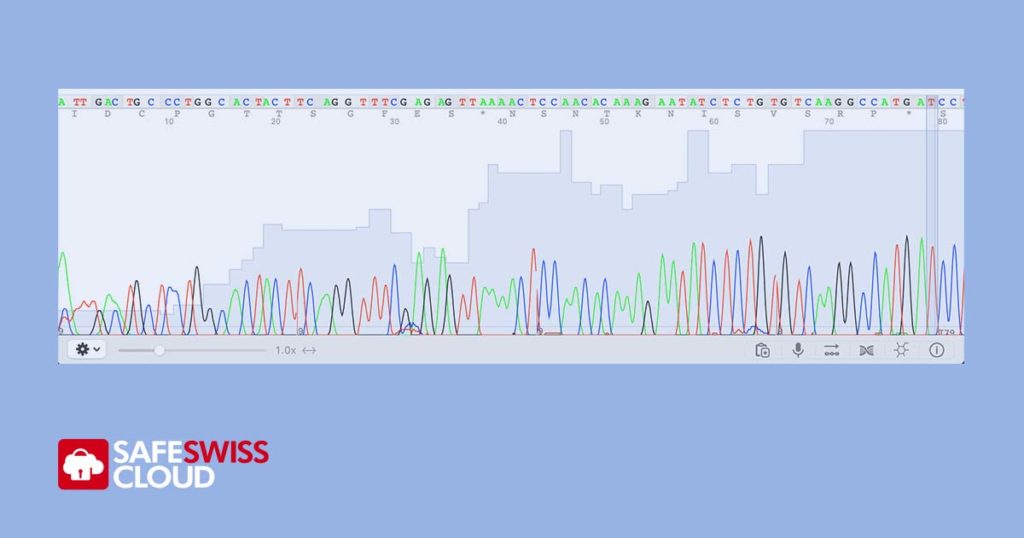
Kubernetes Cloud
Kubernetes, Openshift & Docker cloud,
for privacy sensitive businesses


Features | Customers & Use Cases | Pricing | FAQ
Product Qualities
Safe Swiss Cloud’s Kubernetes Docker Cloud is a fully managed, high performance and scalable offering. It gives customers the ability to scale up horizontally using pod scaling. It also offers managed, dedicated Kubernetes clusters for customers who need this.

Public Kubernetes cloud: ideal for developers and software as a service (SaaS). Fully managed by Safe Swiss Cloud.

Persistent storage with dynamic claims management is available as a standard feature.

Micro services: use the GUI, Kubernetes API or the command line (CLI) to manage your micro services.

7×24 Support from Safe Swiss Cloud engineers

Dedicated Kubernetes clusters: For full control and maximum features. Fully managed by Safe Swiss Cloud.

100% redundant, clustered SSD storage for reliability and performance.

Instant deployment: open an account and start deploying Docker containers instantly into the cloud.

Special storage categories: various storage categories, from affordable to high performance are available.

European data sovereignty, privacy & compliance: learn more
Request a free Kubernetes Cloud Briefing
Learn more about the advantages of docker containers in our Managed Kubernetes Cluster with Persistent Storage.

Features | Customers & Use Cases | Pricing | FAQ
Customers & Use Cases
Kubernetes Cloud: Customers
Customers who are using Safe Swiss Cloud’s Kubernetes offering include:
- Software companies
- Blockchain companies
- Health Care companies
Kubernetes Cloud: Use Cases
- Block Chain applications
- Continuous integration & delivery / DevOps
- Secure deployment e.g. for banking applications
- Web hosting
- Online development environments
- Cloud native applications
Features | Customers & Use Cases | Pricing | FAQ
Kubernetes Cloud Pricing
| Name | Units | Monthly Price CHF / EUR | Product ID |
|---|---|---|---|
| CPU – Kubernetes CPU | Number / month | 9.90 | k2s.vCPU-2GHz |
| RAM – Kubernetes Memory (in GB) | GB / month | 9.90 | k2s.RAM |
| Clustered SSD ephemeral storage volumes for containers | GB / month | 0.12 | k2s.ssd-ephemeral |
| Clustered SSD persistent storage volumes: standard including backup (7 daily + 5 weekly + 4 monthly) | GB / month | 0.24 | k2s.ssd-persistent |
| Clustered SSD persistent storage volumes: IO3 (5000 IOPS) including backup (7 daily + 5 weekly + 4 monthly) | GB / month | 0.60 | k2s.ssd-pers-io3 |
| Clustered SSD persistent storage volumes: DYNX (25 IOPS/GB) including backup (7 daily + 5 weekly + 4 monthly) | GB / month | 0.75 | k2s.ssd-pers-dynx |
| Dedicated IP Address | Number / month | 11.00 | k2s.ded-pub-ip |
| Network traffic: up to 5TB per month included (fair usage policy applies) | GB / month | 0.00 | |
| Additional network traffic | GB / month | 0.04 | n2s.network-traffic |
| Object storage for backups, archival etc. | GB / month | 0.05 | s2s.obj-stor |
Pricing for Support Services
Use Safe Swiss Cloud’s flexible support packages to complement your managed Kubernetes offering. It provides access to competent engineers who can help you navigate through the Kubernetes and OpenShift features, troubleshoot issues and answer your questions.
Monthly Support Packages
| Monthly Support Packages | Included Hours (per month) | Expiration of support hours | Price / month CHF / EUR | Contract Duration (months) | Billing | Product ID |
| Monthly Support 2 | 2 | Monthly | 290 | 1 | Monthly | pro2.support-2 |
| Monthly Support 5 | 5 | Monthly | 725 | 1 | Monthly | pro2.support-5 |
| Monthly Support 10 | 10 | Monthly | 1’400 | 1 | Monthly | pro2.support-10 |
| Monthly Support 15 | 15 | Monthly | 2’100 | 1 | Monthly | pro2.support-15 |
Annual Support Packages
| Annual Support Packages | Included Hours (over 12 months) | Expiration of support hours | Price / month CHF / EUR | Contract Duration (months) | Billing | Product ID |
| Annual Support 10 | 10 | Yearly | 130 | 12 | Monthly | pro2.support-10-annual |
| Annual Support 25 | 25 | Yearly | 330 | 12 | Monthly | pro2.support-25-annual |
| Annual Support 50 | 50 | Yearly | 650 | 12 | Monthly | pro2.support-50-annual |
| Annual Support 100 | 100 | Yearly | 1’250 | 12 | Monthly | pro2.support-100-annual |
| Annual Support 200 | 200 | Yearly | 2’420 | 12 | Monthly | pro2.support-200-annual |
| Annual Support 300 | 300 | Yearly | 3’500 | 12 | Monthly | pro2.support-300-annual |
Features | Customers & Use Cases | Pricing | FAQ
Frequently Asked Questions
Important questions and answers about our Kubernetes Cloud.
Kubernetes is an open-source platform for automating container-based applications. It was developed by Google and is now a part of the Cloud Native Computing Foundation. Kubernetes can be deployed on a variety of cloud computing platforms, including Google Cloud, AWS, Microsoft Azure, and several others.
The need for Kubernetes arises from the increasing use of containers in developing and deploying applications. Containers are an efficient and consistent way to deploy applications across different environments. Kubernetes makes it easier to manage containers and automate deployment processes. With Kubernetes, developers and IT teams can deploy applications quickly, efficiently, and reliably, regardless of the underlying infrastructure.
Kubernetes can be used in various ways, including deploying applications in the cloud, scaling applications, managing container orchestration, load balancing, monitoring, and recovering applications.
The benefits of Kubernetes in application development are numerous. It facilitates scaling of applications, allocation of resources, and automatic recovery of applications in case of failures. Kubernetes also offers a high degree of flexibility and portability, allowing applications to be deployed seamlessly across different infrastructures. Moreover, it can improve collaboration between developers and IT teams by providing standardized workflows and automated processes.
Overall, Kubernetes can help developers and IT teams develop and deploy faster and more efficient applications that seamlessly function in different environments. It is a powerful platform that enables automation of complex tasks and improves scalability of applications.
Yes.
Persistent storage is part of our standard offering and allows for the dynamic allocation and release of persistent storage claims.
All storage volumes at Safe Swiss Cloud are provisioned on redundant data storage clusters (SAN), providing the following types of redundancy:
Redundant storage media: if an SSD has a defect, customers will not notice anything and processing will continue as normal. Safe Swiss Cloud will replace the defective storage device in the background without downtime.
Redundant storage node: if a storage node has a defect, customers will not notice anything and processing will continue as normal. Safe Swiss Cloud will replace the defective storage device in the background without downtime.
The use of 100% clustered block storage based on SSDs ensures maximum reliability, uptime and performance.
Yes.
Customers get access to a WebGUI based on the OKD distribution of Kubernetes which provides a superb dashboard as well as management functions for your containers and projects.
Customers can also access their Kubernetes projects via the command line (CLI) utilities like kubectl, oc and odo.
Yes, all out clouds offer software defined networking (SDN).
This allows you to create your own networks and rules of access to each network and between them.




